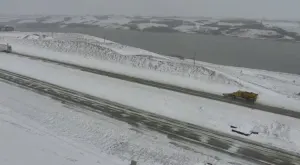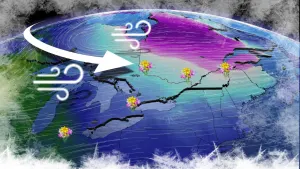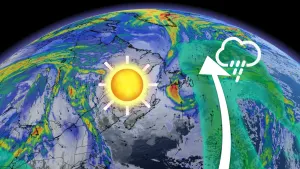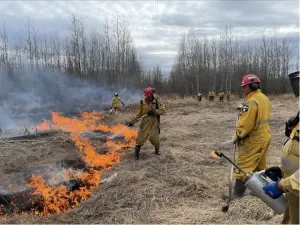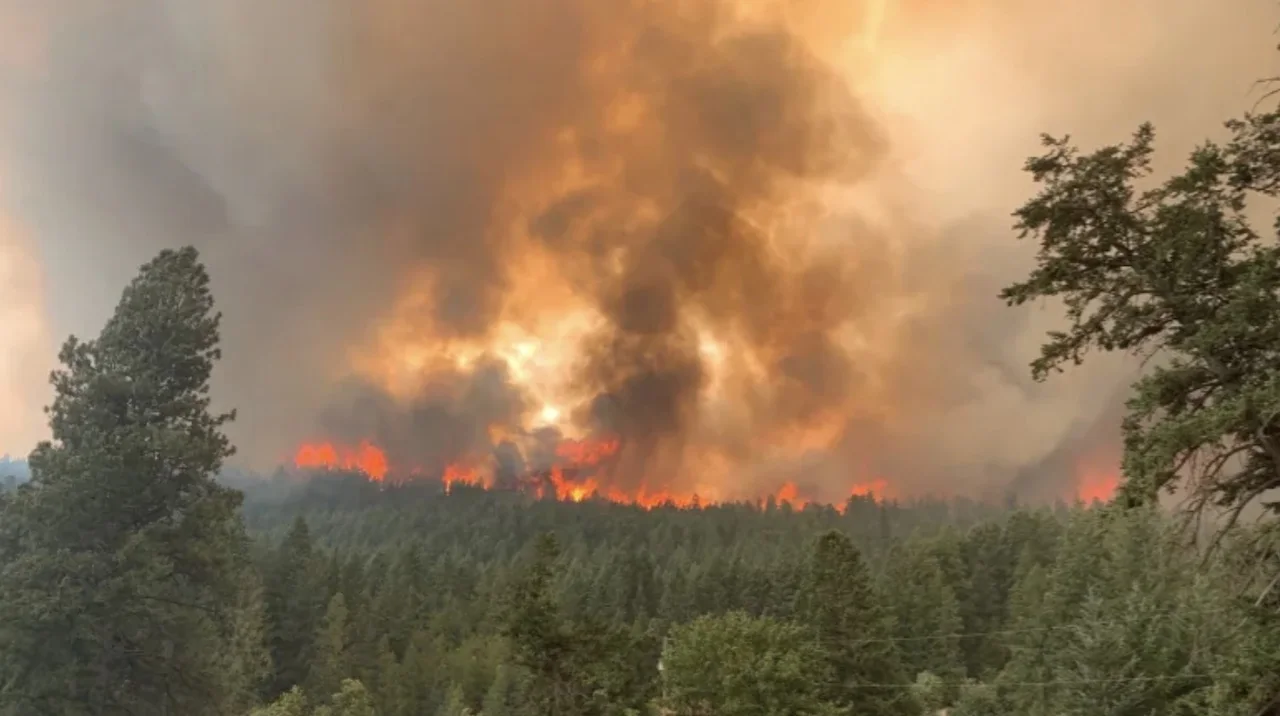
Wildfire smoke alters clouds, may reduce summer rainfall, study says
The results of the study found that wildfire smoke across the western U.S. strongly impacted the microphysics of small cumulus clouds, which had high droplet concentrations and small droplet sizes.
Wildfire smoke can have serious ramifications for human health, but it has also been found to have negative impacts on temperatures, clouds and water droplets, potentially leading to a reduction in rainfall during the summer months.
This is according to a recent study that was published last month in the journal Geophysical Research Letters. The research was conducted in summer 2018, involving the measurement of small cumulus clouds in the U.S. West using airborne instruments during wildfire season.
SEE ALSO: Does breathing in wildfire smoke mean lung issues for life?
The western United States is no stranger to wildfires -- currently experiencing an above-average season -- which produce large quantities of smoke during the summer months. The smoke includes airborne particles that can act as nuclei for forming individual droplets in clouds.
The results of the study found that wildfire smoke across the western U.S. strongly impacted the microphysics of small cumulus clouds, which had high droplet concentrations and small droplet sizes. On average, sampled clouds had about five times as many droplets, but the droplets were about half the size, compared to clean clouds measured in other studies.
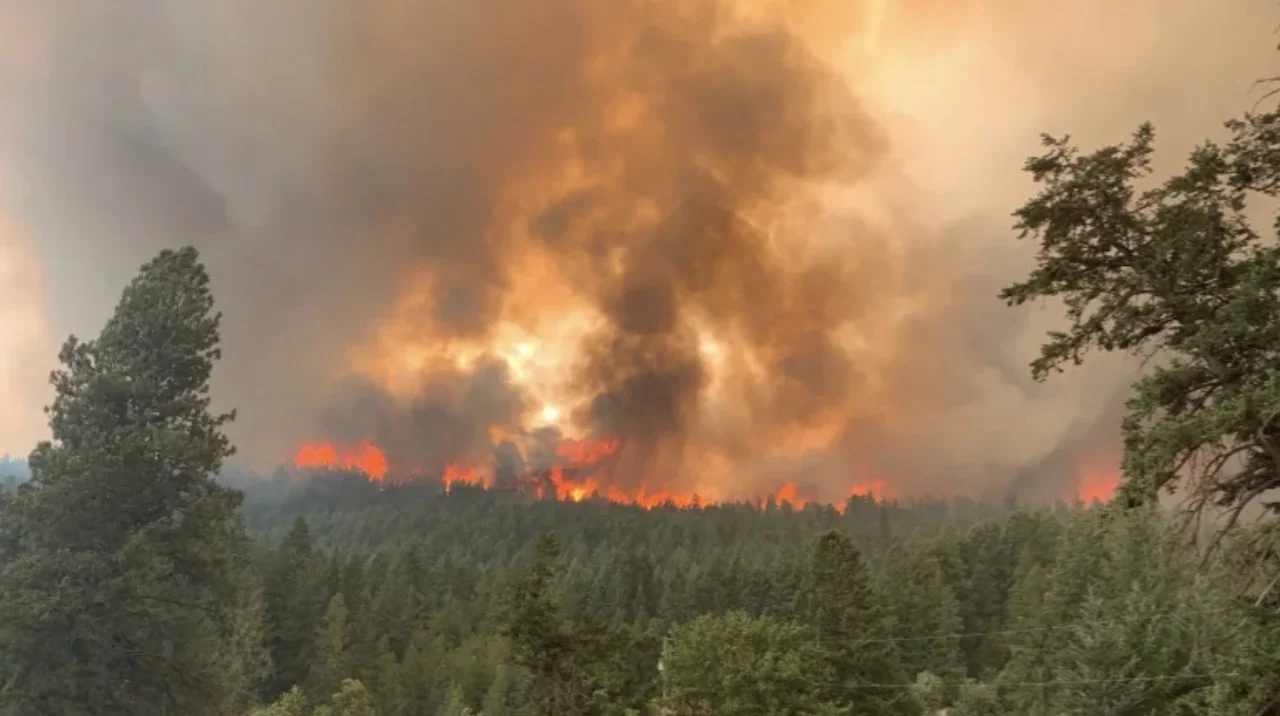
(B.C. Wildfire Service)
"We know these changes are due to the wildfire smoke because the smoke was widespread across the region. We measured the size and ability of these particles to absorb water, and also, we actually collected cloud droplets and found they seeded on smoke particles," Cynthia Twohy, one of the study's authors, told The Weather Network in a recent email.
Twohy is a senior research scientist specializing in aircraft measurements of aerosol particles and clouds. She works at NorthWest Research Associates in Redmond, Wash.
WHY DROPLETS DECREASE IN SIZE
The reason why the droplets in smoke-impacted clouds increase in quantity but decrease in size is that smoke particles act as “cloud condensation nuclei," Twohy said, or particles for water to condense on and form droplets.
"So with more smoke particles, there are more cloud droplets, and they are smaller because there’s only a certain amount of water available to condense," she said.
Cloud droplets need to be of a certain size to "collide with another" and grow large enough to form raindrops, Twohy explained, noting that a raindrop is about 100 times the diameter of a cloud droplet. Because the smoky droplets are so small, they never reach that critical size.
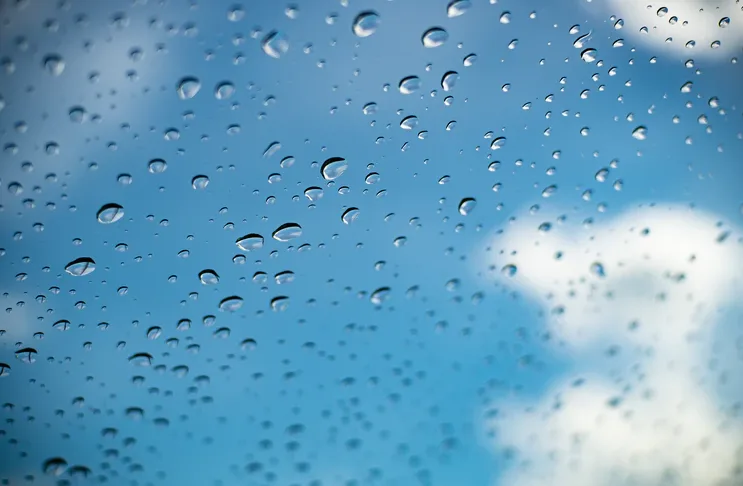
(Unsplash)
"This applies for the small cumulus clouds we sampled, which didn’t have much ice. For deep convective clouds, for example, thunderstorms, there are a number of other processes going on and the effects are potentially different," said Twohy.
While the study focused mostly on cumulus clouds, researchers also sampled stratus clouds off the California coast on one flight, revealing they were also affected by smoke, the senior research scientist said.
"Also, some smoke particles can act as seeds for ice formation in deep convection or in high clouds like cirrus. These are more complex effects that we didn’t directly measure in this study, but hopefully others will investigate them," Twohy added.
PRECIPITATION, WARMING/COOLING IMPLICATIONS
She explained that diverse impacts on radiative forcing and precipitation are possible across the western U.S. and areas downwind due to wildfire smoke.
In other studies, Twohy noted data shows that overall summertime precipitation in the West has decreased in recent decades.
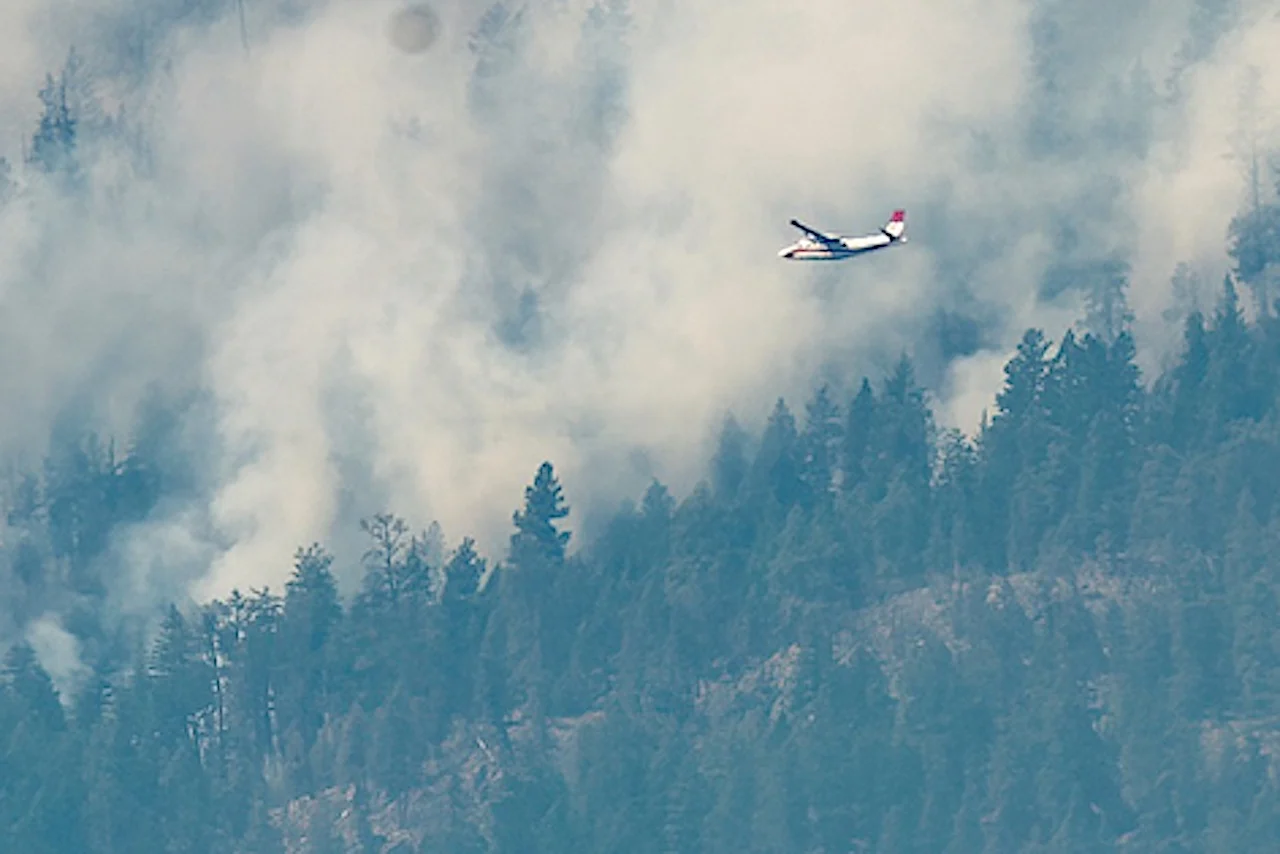
(Kyle Brittain)
The small cumulus clouds that are frequent during the summer contain smaller water droplets (more surface area) and would reflect more light, thus potentially having a cooling influence on climate.
On the other hand, the smoke itself may have a warming influence because smoke particles have organic compounds (brown carbon) that absorb light, possibly also acting to "burn off" the clouds, Twohy said, particularly since the droplets are smaller and more likely to evaporate.
"However, the amount of absorbing material in the aged smoke across the western U.S. was lower than measured in other areas and used in some modelling studies, so this warming might be less important," she added.
WILL LESS RAINFALL DUE TO WILDFIRE SMOKE LEAD TO MORE FIRES AND DROUGHT?
So, that leads to the question: Would a decrease in rainfall in the summer from the wildfire smoke increase the number of fires and severity of drought? "We don’t know that at this point. We just know that the clouds are changed by smoke, and this is one possible feedback," Twohy answered.
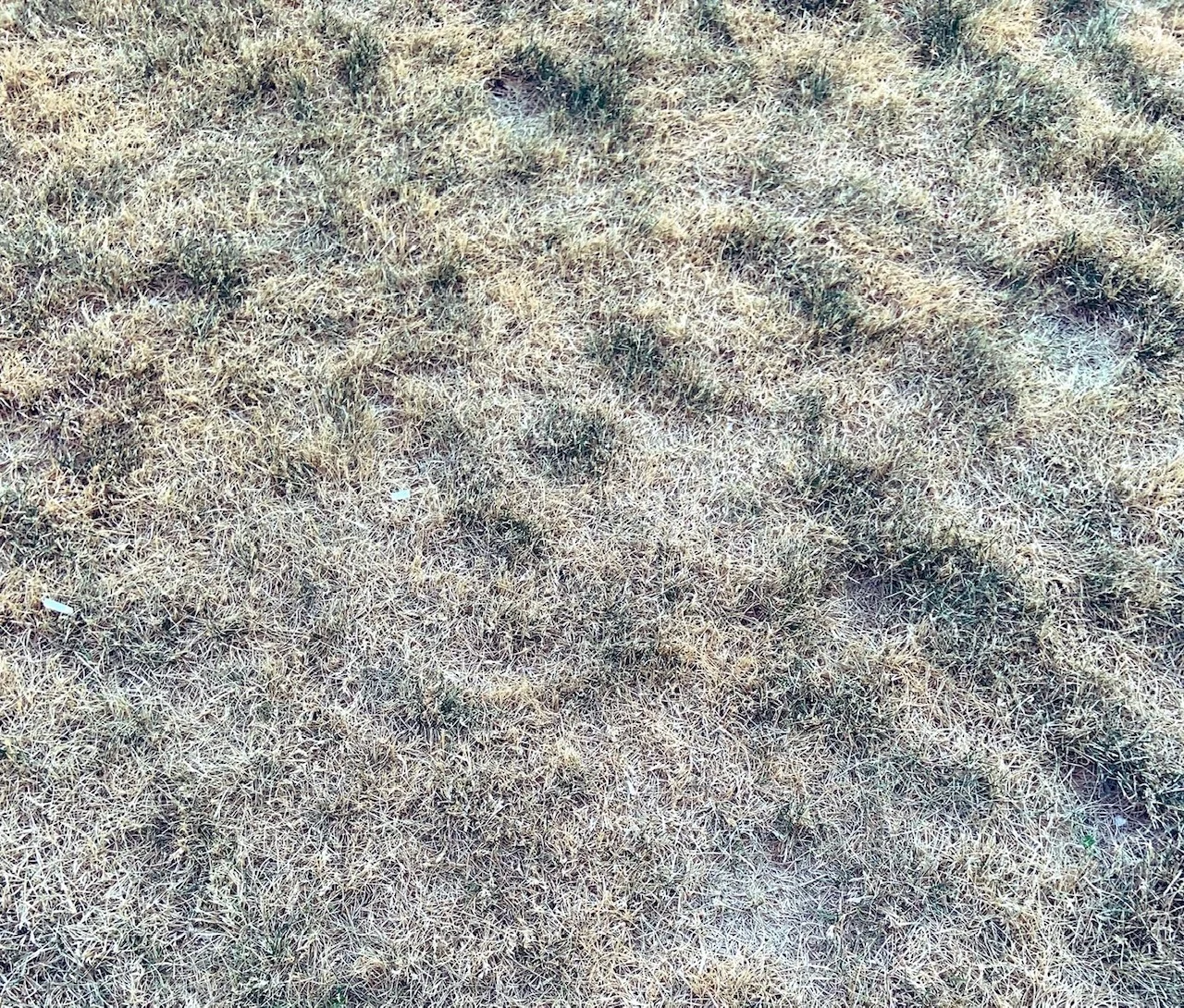
(Nathan Howes)
As well, the smoke would only affect clouds present during the fire season since smoke particles have a "finite lifetime in the atmosphere," she added. "Some of my colleagues who do regional modelling calculations are working to understand the net effect, including other cloud types, across the western U.S in the summertime," said Twohy.
At the end of the day, Twohy hopes the study will inspire more research into the competing effects. Detailed regional models are needed, including both aerosol and cloud effects of wildfire smoke, so researchers can understand the net effect, and how it plays into the drought and wildfire frequency in the West, she said.
"To find solutions, we need to understand the problem. It’s important that we include clouds in order to understand better what is happening to climate in this region. This paper highlights that clouds are indeed being impacted by smoke, some of the possible feedbacks involved and their potential importance," said Twohy.
Thumbnail courtesy of B.C. Wildfire Service.
Follow Nathan Howes on Twitter.







